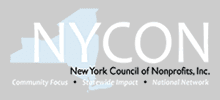The Utica OD offered a very relevant viewpoint for any board member, whether municipal or nonprofit, should take into account:
It is truly chilling to learn that an amount equal to one-third of the Fairfield town budget could be misappropriated over time without anyone noticing.
A similar situation occurred just a short while ago when it was discovered that the town of New Hartford’s reserve had been depleted by $2.8 million – again, without anyone noticing.
We expect police to patrol our streets and deter crime. We expect public health officials to identify early outbreaks of disease. We expect teachers to educate our children.
Most certainly, those people elected and/or appointed to serve in key leadership roles must monitor a government’s or organization’s finances.
The story has been repeated across the Mohawk Valley and elsewhere, and not just in municipal governments like Fairfield and New Hartford, but also at nonprofit agencies, where private and public funds have been misappropriated or mishandled.
These incidents raise the very real specter that financial oversight is sorely lacking in the public and nonprofit sectors, and that malfeasance and waste are far more common than we’d like to believe.
Take Fairfield. In a town of just 1,607 people, a whopping $378,000 disappeared between 2005 and 2009. The current town supervisor now estimates additional costs of $800,000 or more, factoring in fines for missed reports and expense to borrow money to make up for the missing funds. The former town supervisor’s wife, Randi Matthews, has been charged with embezzlement and her case is in the courts, but the state Comptroller’s Office audit makes it quite clear that the Town Board members did not do their job. No one studied financial reports closely enough, and no one reconciled the financial statements with bank records, which would have been an immediate tipoff to problems.
The lessons here, for anyone serving on a board, are simple:
• Become familiar with financial statements. Talk to the treasurer, or the auditor, and educate yourself on financial statements, and what to look for.
• Ask questions when reviewing monthly financials. This is a critical responsibility of every board member. Look closely at the numbers, ask yourself if they make sense, and if anything looks amiss, refuse to approve the financial reports without a clear accounting.
• Insist on an annual independent audit. A good auditor is going to smoke out questionable financial practices, usually by finding irregularities when reconciling financial statements with checks or vouchers.
Review the audit report carefully.
• Rely on appropriate experts for advice. These would be the state Comptroller’s Office in the case of governments and the state Attorney General’s Office in the case of nonprofit agencies and charities.
• Blow the whistle at even the smallest signs of trouble. Remember, your responsibility is to the government, the agency, the taxpayers or the stakeholders, not to the individual people running the government or agency. Silence allows incompetence or malfeasance to flourish.
None of this is complicated, if the proper procedures are followed regularly. Remember, the person who’s absconding with the funds is almost always a trusted member of a government’s or agency’s inner circle. To ensure that funds are managed properly, board members should recall the apt words of President Reagan: Trust, but verify.
Copyright 2010 The Observer-Dispatch. Some rights reserved
Subscribe to:
Post Comments (Atom)













No comments:
Post a Comment